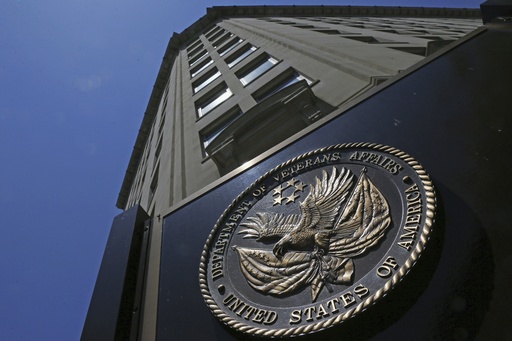
For the nurses working with military veterans at the Department of Veterans Affairs, the deferred resignation proposal from the Trump administration adds to existing staffing struggles, which are reported to be critical at over half of the facilities. As the deadline for this offer approaches, unions are advising nurses to decline, emphasizing that a significant departure would adversely impact the care available to the 9.1 million veterans currently enrolled for services.
“We are already grappling with a staffing dilemma in our hospitals,” stated Irma Westmoreland, who leads the Veterans Affairs unit at National Nurses United. “We cannot afford to lose any additional personnel.”
Nurses within the VA represent the largest single group of civilian federal employees, exceeding 100,000 and constituting about 5% of the total full-time workforce, as depicted in a thorough review of personnel data. Mary-Jean Burke, a union representative, noted an influx of inquiries from nurses and other VA staff nationwide. Initially, some individuals found the buyout proposal appealing; however, interest has waned as further information surfaced.
“At first, many were enticed by the thought of leaving,” Burke, a physical therapist and leader with the American Federation of Government Employees, remarked. As the details disclosed by the Office of Personnel Management became available, the offer started to seem “too good to be true, leading people to reconsider.”
According to the analysis, a notable proportion of VA nurses are older than their federal counterparts, with 16.2% aged 55 and above, while the rest of the federal workforce stands at 14.6% in the same age bracket. Burke mentioned that those eligible for retirement appear to be conflicted regarding the offer, which guarantees pay until the end of September despite existing questions about the proposal’s legality.
Initially perplexed, nurses have now transitioned to anger, according to Westmoreland. Official communications regarding the offer have suggested a lack of productivity among nurses, which has greatly offended many. A subsequent informational email urged federal workers to seek out opportunities in the private sector.
“Promoting greater American prosperity involves encouraging the transition from less productive positions in the public sector to more productive roles in the private sector,” stated the email. Burke also relayed that many workers have expressed concerns over other simultaneous executive orders.
“In Indiana and elsewhere, there’s a significant level of anxiety regarding the turmoil they sense around them,” Burke noted. The VA leadership has shared similar concerns over how nursing might be impacted, with a recent report indicating that more than 80% of facilities are facing serious nursing shortages.
“They are anxious as well,” Burke added. “While they have to adhere to presidential directives, they also acknowledge the implications, such as, ‘If five nurses opt for the buyout, we will lose an operating room.’ Such statements are part of ongoing discussions.”
The VA did not provide a response to inquiries made via email.
In a communication released on Wednesday from the Office of Personnel Management, there was an elevation of pressure on federal employees to take up the financial release proposals to resign. “Employees will be subjected to heightened standards of suitability and conduct as we proceed,” the email highlighted.
Burke also voiced her concerns regarding the future of the federal workforce, stating, “I anticipate it will undergo noticeable changes. Many are stressed out due to the shifting expectations around their mission.”

